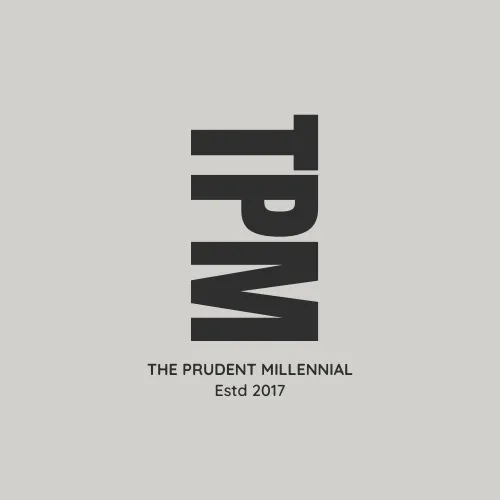Unlock Your Potential and Build the Career of Your Dreams!
Are you looking for a career where you can:
✅ Achieve financial freedom?
✅ Make a meaningful impact on others' lives?
✅ Enjoy flexibility and control over your time?
Welcome to Grow Your Business (GYB) with FWD Mt. Triumph, where aspiring financial advisers like you learn how to turn their dreams into reality.
📍 Join Us Every Saturday at 2 PM
Mt. Triumph Office
8/F Triumph Square, 1618 Quezon Avenue, Quezon City

Take the First Step Toward Your Success!
What Awaits You at GYB?
💡 Discover the life-changing opportunities in becoming a financial adviser.
💡 Learn proven strategies to grow your career BIG and FAST.
💡 Be part of a team of driven, success-oriented individuals.
💼 Fill out the form below or scan the QR code to secure your spot at our next event.
🔒 Your Future Starts Here. Don’t Wait—Reserve Your Slot Now!
🚀 Join FWD Mt. Triumph: Your Path to Success Starts Here!
Every Saturday at 2PM
MT. TRIUMPH OFFICE, 8/F TRIUMPH SQUARE
1618 QUEZON AVE., QUEZON CITY
TPM Blog

Your Safety Net: Why do you need an Emergency Fund Now
I know we’ve all heard it before: "You need to build an emergency fund." But for a lot of people, it can feel like just another thing on the endless list of financial responsibilities. Trust me, though—it’s one of the most essential steps you can take towards financial security, and once you have it, the peace of mind is priceless.
Why Is an Emergency Fund So Important?

Life is unpredictable. You can be cruising along, everything going smoothly, and then boom—something unexpected happens. Whether it’s a medical emergency, a sudden job loss, or even something as simple as your car breaking down, these situations usually come with a financial hit. Without an emergency fund, you’re likely to fall into debt, scramble to borrow money, or, even worse, sell off investments that were meant for long-term goals.
An emergency fund acts as a safety net that cushions you from the financial blows life throws at you. It’s that buffer that keeps you from spiraling into financial stress whenever something goes wrong.
How Much Should You Have?
Now, a lot of people get stuck on how much they should save. Ideally, your emergency fund should cover 3 to 6 months’ worth of living expenses. If you’re a freelancer, self-employed, or working in an industry with less job security, you might want to aim for the higher end of that range—or even go beyond it.
Here’s the thing: it might seem like a massive amount, especially if you’re just starting out. But you don’t have to get there overnight. The key is to start small. Even if all you can manage right now is saving enough to cover a month’s worth of rent or one major bill, that’s already a huge win. What’s important is that you’re actively working towards that goal.
Where Should You Keep Your Emergency Fund?

This part is crucial—don’t make the mistake of keeping your emergency fund tied up in stocks or mutual funds where it can fluctuate with the market. This fund is for emergencies, not for making a profit. You need to be able to access it quickly without worrying about whether your investments are up or down.
Your best bet? A high-yield savings account. These accounts offer a decent return without locking your money away for long periods, unlike fixed-term investments. The goal here is accessibility and stability. You need that money to be safe and easy to pull out whenever you need it.
Benefits Beyond Just Money
The thing about having an emergency fund is that the benefits go beyond the numbers in your bank account. One of the biggest advantages is the mental and emotional relief it brings. When you know that you have that financial safety net, it takes a load off your mind.
Stress about unexpected expenses starts to fade away because you’re covered. You won’t be as worried about what might happen if you lose your job or your car suddenly needs expensive repairs. And trust me, when financial stress eases up, you have way more mental energy to focus on other things—whether it’s your career, your relationships, or your goals.
What Happens If You Don’t Have One?
Let’s be real—if you don’t have an emergency fund, life can get complicated quickly. Say your fridge breaks down or you have a medical emergency that isn’t fully covered by insurance. Without that safety net, you’re probably going to have to put those expenses on a credit card, dip into your retirement savings, or even take out a loan. And once you go down that path, it’s a slippery slope into debt.
What’s worse is that debt isn’t just a financial burden—it also limits your freedom. Suddenly, you’re paying off interest on top of the amount you actually borrowed. And debt can grow faster than you think if you're not careful.
Building Your Fund, Step by Step
The good news is, you don’t need to set up an emergency fund all at once. Start small. Set a goal to save your first Php 50, 000, and then build from there. Automate your savings if you can—having a portion of your paycheck directly deposited into your emergency fund is a great way to make sure you’re consistently building it up.
Also, don’t touch it unless it’s a real emergency. And no, that vacation you’ve been eyeing isn’t an emergency, even if it feels like one! The goal here is to keep it intact for those situations that you can’t plan for.

